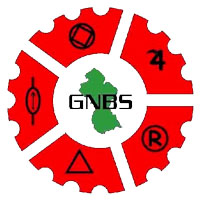The Guyana National Bureau of Standards (GNBS) is a semi-autonomous agency under the Ministry of Business. It is responsible for promoting the use of standards in Guyana to improve the quality of goods and services and to enable trading across borders.
The Bureau also provides business support services to help businesses implement standards, become internationally accredited and certified.
Today’s article will focus on four key business support services offered by the GNBS to help drive business development in Guyana, namely; Standards Development, Consultancy, Training and Audit services.
Standards Development:
Standards are published documents that provide requirements, specifications, guidelines or characteristics that can be used to ensure consistency of materials, products, processes and services that people use. Standards also facilitate interoperability of systems, products or services as they provide a common platform for those who subscribe to them.
Standards benchmark quality and reliability, facilitate international recognition and ease of trade between countries, facilitate sharing of technology and good management practices and safeguard consumers.
Standards also provide governments with a technical base for health, safety and environmental legislation.
Businesses that adhere to standards are likely to see improved performance as they achieve compliance with regulatory bodies; have the ability to produce with consistency, efficiency and reliability and their internal systems and processes are also improved.
The GNBS facilitates the development, adoption, adaption, amendment, reaffirmation and revision of standards, technical regulations and conformity assessment procedures.
Any entity or individual can propose the development of a particular standard by simply submitting a proposal to the GNBS. The proposal will then be reviewed by the National Standards Council before any work can commence on the standard.
In many countries, local industry practitioners and consumers drive the standards development process. They encourage the development of standards for locally manufactured goods and services to ensure that all manufacturers of a particular product consistently adheres to the same requirements during production.
Standards can either be voluntary or compulsory. Either way, local companies particularly producers, stand a better chance of entering foreign markets if they can comply with internationally recognised standards.
Consultancy Services: The GNBS has a team of management systems experts who provide consultancy services to local entities.
Companies interested in implementing management and food safety system standards especially, can approach the GNBS for assistance.
The process usually begins with an awareness session being conducted by the GNBS team for the company. The focus of the session is on the particular standard which the client is interested in implementing or for which they wish to become certified; for example, the ISO 9001:2015 – Quality Management System Requirements.
This is followed by a gap analysis to inform the company on how the existing operations stack up against the standard. From the gap analysis, an action plan is developed to address the gaps identified in order to facilitate the implementation of the standard.
The organisation’s team responsible for ensuring internal compliance is usually provided with training and coaching by the GNBS team. Drafting of policies and procedures are also critical to ensuring that the right documentation for the organisation’s processes is developed. These documents must be reviewed to ensure alignment with the requirements of the standard.
The GNBS also provides oversight to the company during the implementation of the system and where necessary, assists the company to select a suitable certification or accreditation body.
Over the past five years, the GNBS has successfully guided ten (10) companies to certification and/or accreditation to international standards.
Training Services: The GNBS provides training courses on a wide range of management systems standards and to date, a number of companies have been benefiting from these course. Other courses such as internal auditing, documentation requirements, root cause analysis and data analysis are also offered. Some of these training programmes are offered by the GNBS in collaboration with other consultants and firms.
Audit Services: Conducting audits of companies to determine their level of conformance to standards (conformity assessment) and adherence to their own management systems is another important service that the GNBS provide.
The GNBS team of certified auditors perform the audits based on requests by companies.
By enlisting the assistance of the GNBS in this regard, the entity is demonstrating its commitment to improvement of its own operations as these audits also provide the company with a snapshot of how well systems are working and enable it to take corrective action.
In conclusion, more businesses in Guyana should seek to embrace standards compliance as an essential aspect of their operations. The GNBS will continue to offer support in this regard.










